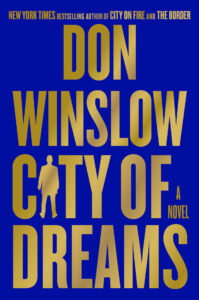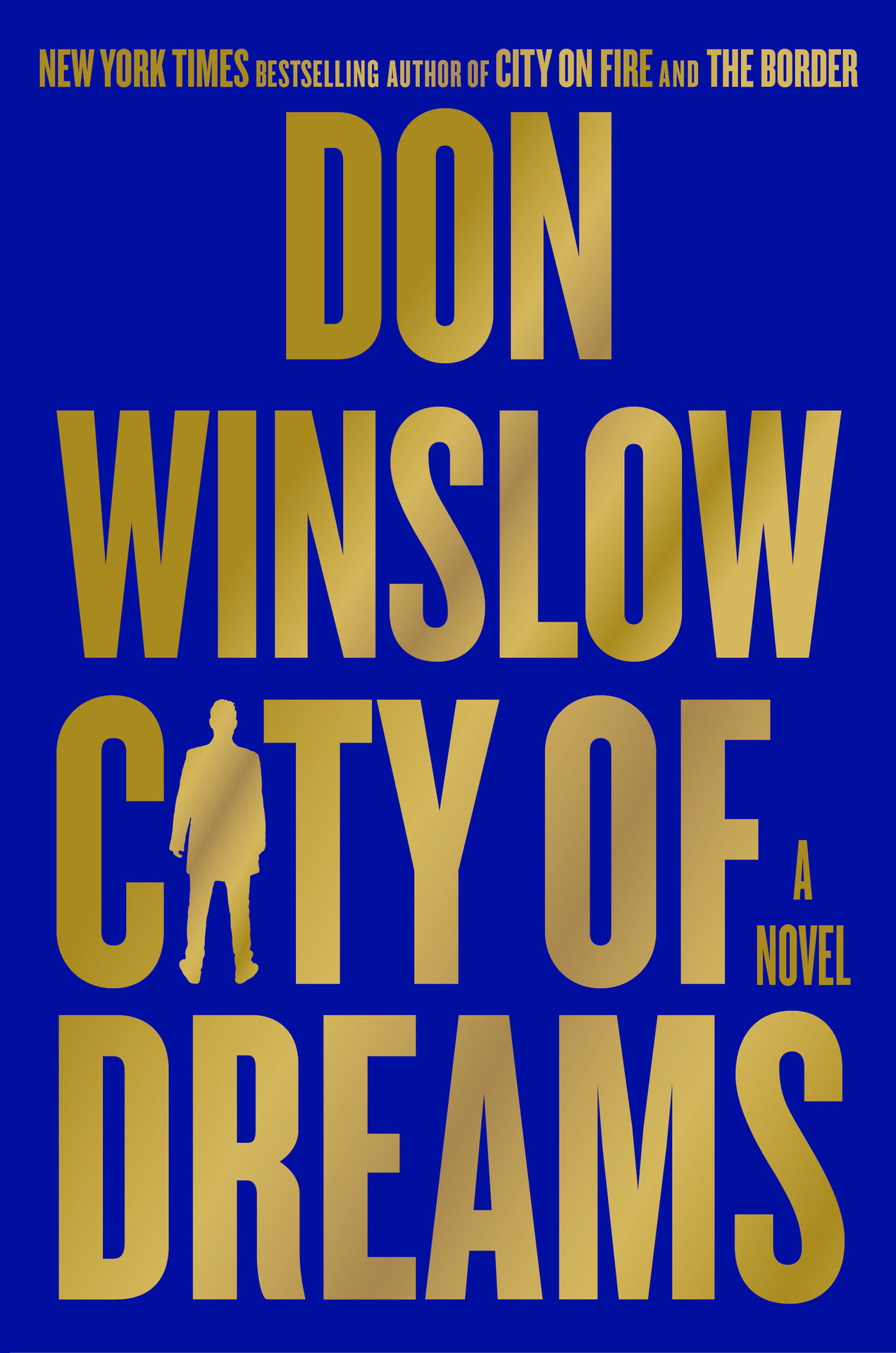 Believe it not, Your Book Hound is not always up on the latest from every bestselling author. When I started to read City of Dreams, by Don Winslow, I thought the characters and style seemed familiar. I felt I had met them before in the book, The Force, which told the story of a complex, Irish American New York cop named Denny Malone and his anti-heroic journey. I was right. Duh! Same author, similar stories and characters. City of Dreams reverses the mirror and offers a tale of an Irish American mobster named Danny Ryan. Both, I suspect are alter egos for Don Winslow (Danny, Denny, Donny… you get the picture.)
Believe it not, Your Book Hound is not always up on the latest from every bestselling author. When I started to read City of Dreams, by Don Winslow, I thought the characters and style seemed familiar. I felt I had met them before in the book, The Force, which told the story of a complex, Irish American New York cop named Denny Malone and his anti-heroic journey. I was right. Duh! Same author, similar stories and characters. City of Dreams reverses the mirror and offers a tale of an Irish American mobster named Danny Ryan. Both, I suspect are alter egos for Don Winslow (Danny, Denny, Donny… you get the picture.)
City of Dreams is the second book in the Danny Ryan trilogy. It’s a multi-part mob opera, full of larger-than-life characters that you care about and root for even though they are, in objective terms, low life criminal scumbags. The Force is similar, with Winslow’s Denny Malone turning a bribe-taking, adulterous, drug-stealing, murderous cop into some sort of urban hero. Malone certainly has that opinion of himself, even if no one else does. These books both remind me of a dear (and funnier than me) friend’s take on the movie Bad Lieutenant: “Harvey Keitel plays a cop who injects cocaine into his dick and has sex with little girls, and he’s the GOOD GUY.”
This book starts off with a recollection of the Rhode Island mob wars covered in City on Fire, the first book in the trilogy. There, we are introduced to the Irish and Italian mob families that control the state. After decades of uneasy co-existence, the two groups explode into “winner take call” violence. They go to the mattresses, as Al Pacino might have put it. It doesn’t go well for the Irish, led by Danny Ryan.
We open the story with Ryan and the remnants of his crew racing across the country in stolen cars, hiding from the law and the Italian mob, led by Peter Moretti. While the (overplotted) story is too complicated to explain here, Moretti may have won the war, but he’s in deep yogurt. The big heroin deal he bought into with other people’s money has gone south. Danny Ryan stole 10 kilos of it, and proceeded to dump it into the ocean because he wants to “go straight.” Uh huh…
So, as Danny and his crew hide for their lives in San Diego, they’ve got nothing—no drugs, no money, no prospects. Plus, Danny, whose wife Terri has just died of cancer, has his one-year-old son with him on the lam. He needs a plan, but he doesn’t have one. Luckily for him, his estranged mother is a super-rich former showgirl in Vegas. She introduces him to some DEA agents whom she knows (she’s very connected, it seems) and they offer him a way to get out from under his federal charges, if only he’ll rip off a Mexican drug cartel.
Winslow is a very good writer. His characterization is exquisite. His sense of place and atmosphere is amazing. He creates a lot of suspense. You get the feeling he’s lived some of this life, or at least been near it. I kept thinking, though, as I read the first part of the book, this sounds like the kind of story you’d hear if you spent every night at an Irish bar listening to the old guys tell war stories of their mob days.
…and, oddly enough, right in the middle of the book, we meet a former barfly hanger-on to Danny’s crew who has written a screenplay for a movie based on the wars featured in City on Fire. I know from the book’s back jacket that Winslow has been enjoying some well-earned success in Hollywood, so it’s not a surprise when the book digresses into a lengthy segment covering the production of the movie based on the life stories of some of our main characters. Winslow’s razor-sharp eye dissects Hollywood and its never-ending waterfall of bullshit and hypocrisy.
This is funny, but it seems like a digression. In fact, I have a theory that Winslow actually began by writing two separate books, one about Hollywood and one about the mob—and decided to merge them into a single story. It is a trilogy. Maybe it started as a tetralogy, a word I didn’t know until I Googled it 10 seconds ago.
I will say that I liked this book in spite of, not because of its subject. I am not a big fan of mob stories. I don’t believe that mobsters are heroic characters. They’re thieving, stone cold killing sociopaths. Yet, I found myself interested in what happens to Danny. Winslow does offer some moral comeuppance for the really bad guys, so it’s not a totally amoral take on mob life, even if he’s romanticized the family loyalties that are part of mob lore. He even tweaks his own nose, so to speak, by explaining how wimpy Hollywood types are infatuated with the manliness embodied by mob characters.
Check it out, but maybe start with City on Fire, which is the starting point for the story.
